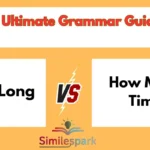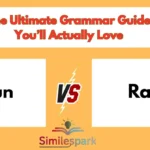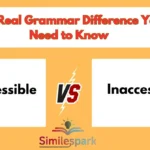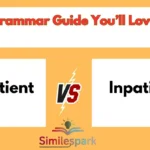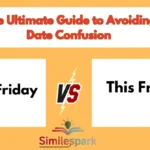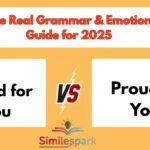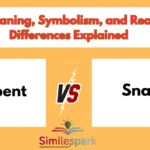Have you ever typed “What happen?” and then hesitated—wondering if it should be “What happened?” instead? You’re not alone.
English verb tenses can be tricky, especially when one tiny ending like “-ed” changes everything. The good news? Once you understand why and how these forms work, you’ll never make the mistake again.
This complete guide breaks it all down with clear explanations, real examples, tables, and simple grammar logic that sticks.
Let’s dive in and finally solve the mystery behind “What happen” vs “What happened.”
Understanding the Grammar Foundation: Verb Tenses Made Simple
Tenses are the backbone of English grammar. They help you show when something took place—past, present, or future.
Here’s the short version:
- Present tense shows what’s happening now or regularly.
- Past tense shows what already took place.
- Future tense shows what will happen later.
Let’s look at the verb “happen.”
| Tense | Base Form | Example Sentence |
|---|---|---|
| Present | happen | Strange things happen every day. |
| Past | happened | Something weird happened yesterday. |
| Future | will happen | We don’t know what will happen next. |
When we say “What happen?” it feels like the present tense, but when asking about something that already occurred, we must use past tense — “What happened?”
Why the Confusion Exists
The confusion comes from how we form questions in English.
Many learners forget that English questions can invert the sentence structure or add an auxiliary (helping) verb like do, did, does.
Also, in many other languages, tense changes don’t always show through a separate ending like “-ed.” So, “What happen?” might sound right but isn’t correct in standard English.
Common Mistakes
- ❌ What happen to your phone?
- ✅ What happened to your phone?
Even native speakers occasionally shorten or skip the -ed in speech because of fast pronunciation, which makes it sound like “What happen?” But grammatically, that’s incorrect.
Deep Dive: The Verb “Happen” Explained
Let’s break down how “happen” behaves as a verb.
Happen means to occur or to take place. It’s an intransitive verb, which means it doesn’t take a direct object. You can’t say “He happened it.” That’s incorrect.
Instead, you can say:
- ✅ Something happened to him.
- ✅ It happened suddenly.
- ✅ Accidents happen.
Present vs. Past
- Present: Things happen for a reason.
- Past: Something happened at the party last night.
Notice how -ed signals that the action is over.
How to Form Questions with “Happen” Correctly
English questions can be confusing, but once you know the rule, it’s simple.
You only need to remember two kinds of questions: subject questions and object questions.
Subject Question
You ask directly about the subject (the “who” or “what” that did something).
✅ What happened?
No auxiliary verb is needed because “what” is the subject.
Object Question
You ask about the object (the thing that received the action).
✅ What did happen? (used for emphasis)
Example:
A: “Nothing happened!”
B: “Really? Then what did happen?”
Incorrect Form
❌ What happen?
There’s no tense marker, so it’s grammatically wrong.
| Type | Example | Correct? | Why |
|---|---|---|---|
| Subject Question | What happened? | ✅ | “What” is the subject; no auxiliary needed. |
| Object Question | What did happen? | ✅ (rare) | Used for emphasis or disbelief. |
| Incorrect | What happen? | ❌ | Missing past tense ending “-ed.” |
Real-Life Usage: How Native Speakers Actually Talk
Native speakers use “What happened?” all the time — it’s one of the most common conversational questions.
Examples in Daily Speech
- “Hey, what happened to your car?”
- “What happened last night? You left early.”
- “Oh no! What happened to your hand?”
Tone and Emotion
- Curiosity: “What happened next?”
- Shock: “Wait—what happened?”
- Concern: “Oh my gosh, what happened?”
The tone often reveals whether you’re surprised, worried, or just curious.
Meanwhile, “what happen” almost never appears in formal English, though you might hear it in song lyrics or slang.
Common Grammar Mistakes and Why They Occur
Even advanced learners fall into this trap because English question structure can feel unnatural.
Here are some common errors:
- Dropping “-ed” → “What happen” instead of “What happened.”
- Doubling tense markers → “What did happened” instead of “What happened.”
- Using “do/does” incorrectly → “What does happened” ❌
Let’s fix these step by step:
| Wrong | Correct | Why |
|---|---|---|
| What happen to you? | What happened to you? | Past tense required |
| What did happened? | What did happen? or What happened? | Avoid double tense markers |
| What does happened? | What happens? | Use “does” only in present tense |
Quick Tips to Avoid Mistakes
- ✅ Add -ed for past events.
- ❌ Don’t mix did and -ed together.
- ✅ Listen for time clues like yesterday, ago, last night.
Context Clues: When to Use Each Form
The easiest way to decide between happen and happened is to look for time clues in the sentence.
| Time Clue | Correct Form | Example |
|---|---|---|
| Every day | happen | Strange things happen all the time. |
| Right now | is happening | Something is happening outside. |
| Yesterday | happened | Something scary happened last night. |
| In the past | happened | It happened years ago. |
If the event is still happening or repeats, use happen or happens.
If the event already occurred, use happened.
Expert Insights: What Grammar Experts Say
Grammar authorities like the Cambridge Dictionary and Merriam-Webster confirm that the past simple form “happened” should be used without auxiliary verbs when “what” is the subject.
“In English, when what is the subject of the question, you do not use an auxiliary verb.” — Cambridge Grammar of English
That’s why “What happened?” is correct, but “What did happened?” isn’t.
Grammarly also notes that “happened” indicates an event that already occurred, while “happen” refers to general or habitual events.
Case Study: How Grammar Changes Meaning
Let’s imagine two people texting.
Scenario:
Jake’s car broke down last night.
Incorrect Version:
Lisa: “What happen to your car?”
Jake: “It broke last night.”
Correct Version:
Lisa: “What happened to your car?”
Jake: “It broke last night.”
Notice how the correct version sounds natural and fluent, while the incorrect one feels off and unfinished. That’s the power of proper tense use.
Quick Quiz: Test Your Grammar Instincts
See if you can pick the correct option.
1. What ___ to your bag?
- a) happen
- ✅ b) happened
2. Things ___ for a reason.
- ✅ a) happen
- b) happened
3. What ___ next in the story?
- ✅ a) happens
- b) happened
4. Nothing ___ all night.
- ✅ a) happened
- b) happen
5. I don’t know what will ___ next.
- ✅ a) happen
- b) happened
How did you do? If you got 4 or more right, your tense sense is sharp!
Avoiding Common Errors: Fast Grammar Fixes
Here’s a quick grammar checklist to keep your writing clean and confident:
✅ Checklist:
- Use “happen” for regular or present actions.
- Use “happened” for past events.
- Don’t combine “did” with “-ed.”
- Practice by rewriting sentences in different tenses.
| Incorrect | Correct | Explanation |
|---|---|---|
| What happen? | What happened? | Use past tense form. |
| What did happened? | What did happen? | Don’t double mark past tense. |
| What does happened? | What happens? | “Does” pairs with present tense only. |
Mnemonic tip:
“If it’s in the past, add -ed fast!”
Related Terms: “Has Happened” vs. “Happened”
Sometimes you’ll see “has happened” instead of just “happened.”
Here’s how they differ:
| Form | Usage | Example |
|---|---|---|
| happened | simple past – a finished action | Something happened last night. |
| has happened | present perfect – connected to now | Something has happened to my phone! |
Use “has happened” when the result still matters in the present moment.
FAQs
What is the difference between “what happen” and “what happened”?
“What happen” is grammatically incorrect. “What happened” uses the correct past tense of “happen,” referring to something that already occurred.
Why is “what happen” incorrect?
It lacks the -ed ending that marks past tense. English requires tense agreement when asking about past events.
Can “what happen” ever be correct?
Not in standard grammar. However, you might hear “what happen” in song lyrics or informal speech for stylistic or rhythmic reasons.
When should I use “what happened”?
Use it whenever you’re asking about a past event—something that already took place.
How can I avoid errors with “what happen” vs. “what happened”?
Listen for time clues (like yesterday, last week) and remember: if it’s in the past, it needs -ed.
Final Thoughts: Making Grammar Feel Natural
The best writers and speakers make grammar feel invisible—it just flows.
When you master small distinctions like “happen” vs “happened”, you not only sound fluent but also clear and confident.
Don’t stress about perfection. Even native speakers slip sometimes. The more you listen, read, and practice, the more natural correct grammar becomes.
So the next time someone asks, “What happen?”, you’ll know exactly what happened—and how to explain it.

